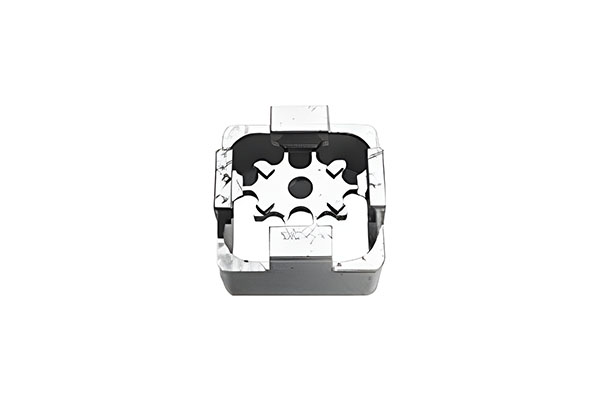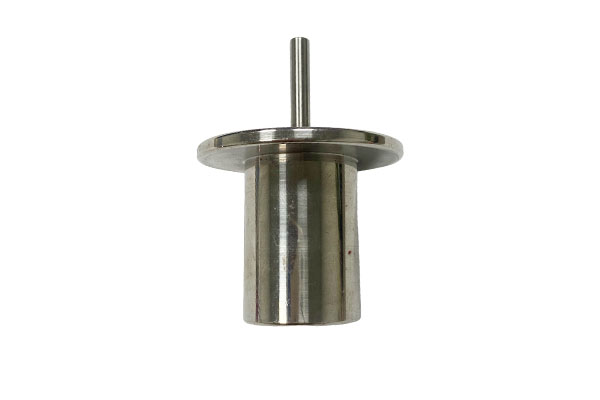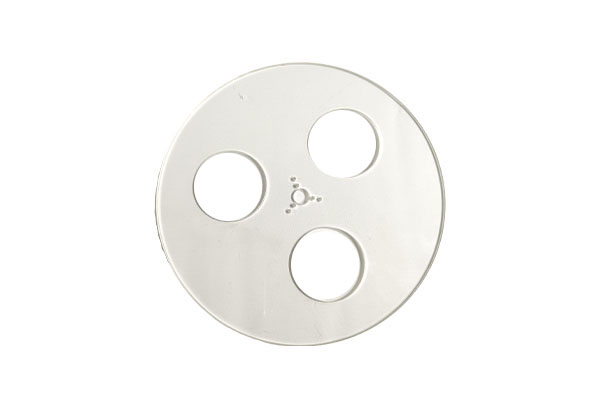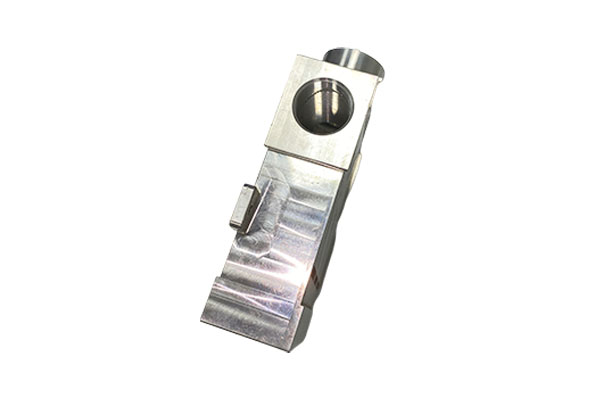How to improve equipment performance and manufacturing efficiency in various industries through CNC machining aluminum alloy?
Release Time : 2025-05-09
In today's rapidly developing industrial field, precision manufacturing technology is essential to improve product performance and production efficiency. Among them, CNC machining aluminum alloy plays an irreplaceable role in many industries with its high precision, high efficiency and wide applicability. From laser equipment to medical automation, from aviation manufacturing to intelligent equipment industry, CNC machining aluminum alloy provides high-quality solutions for various non-standard parts, promoting the technological progress and development of various industries.
First of all, CNC machining aluminum alloy can achieve extremely high machining accuracy. As a lightweight and moderately strong material, aluminum alloy is widely used in occasions where weight reduction but structural strength is required. With the help of advanced CNC technology, aluminum alloy can be finely processed to ensure that every part meets strict design specifications. For example, in new energy photovoltaic equipment, aluminum alloy frames not only need to have good weather resistance and mechanical strength, but also require precise dimensions to ensure perfect docking between components. Through CNC machining, these key components can achieve precision at the micron level, thereby improving the stability and efficiency of the entire system.
Secondly, CNC machining aluminum alloy shows significant advantages in shortening production cycles. Traditional manual or semi-automatic processing methods are often time-consuming and difficult to ensure consistency. CNC machine tools can pre-set processing paths and parameters through programming to achieve automated continuous operation. Whether it is a complex three-dimensional surface or precise hole processing, it can be completed in one go, greatly improving production efficiency. Especially in high-tech fields such as lithium battery equipment and semiconductor equipment, time is competitiveness, and fast delivery of high-quality products is one of the key factors for the success of an enterprise.
Furthermore, CNC machining aluminum alloy is suitable for the customization of non-standard parts with a variety of complex shapes. With the growth of personalized demand in various industries, standard parts can no longer meet the requirements of all application scenarios. For example, in 3C bonding equipment, in order to adapt to different electronic product designs, it is often necessary to make connectors or housings of specific shapes and specifications. CNC machining can flexibly adjust the processing plan according to the specific needs of customers to produce unique parts. This customized service can not only better meet market demand, but also bring differentiated competitive advantages to enterprises.
It is worth noting that CNC machining aluminum alloy also has excellent surface treatment capabilities. After precision machining, aluminum alloy parts usually need surface treatment, such as anodizing, sandblasting, polishing, etc., to enhance their corrosion resistance, wear resistance and aesthetics. CNC technology can not only control the basic form of parts, but also provide ideal substrate conditions for subsequent surface treatment processes. For example, in the aviation manufacturing industry, the external structural parts of aircraft must not only withstand physical stress in extreme environments, but also resist chemical erosion in the atmosphere. Through CNC machining and combined with appropriate surface treatment, aluminum alloy parts can have both excellent mechanical properties and protective properties.
In addition, CNC machining aluminum alloy also has outstanding performance in environmental protection and energy saving. Compared with traditional machining methods, CNC machining produces less waste and consumes less energy. This is mainly due to its efficient cutting strategy and optimized process design. For example, in the manufacturing process of coating equipment, the use of CNC-machined aluminum alloy parts can reduce the amount of paint and reduce VOCs (volatile organic compounds) emissions, which not only meets strict environmental regulations, but also is conducive to the sustainable development of enterprises.
Finally, with the continuous advancement of the trend of intelligence, the application scope of CNC machining aluminum alloy is also continuing to expand. Robots and various intelligent equipment industries have put forward higher requirements for the accuracy and reliability of parts. By integrating sensor technology and data analysis functions, modern CNC systems can monitor the processing status in real time and automatically adjust parameters to ensure the best processing results. This intelligent upgrade not only improves product quality, but also lays the foundation for future remote operation and predictive maintenance.
In summary, by adopting CNC machining aluminum alloy, the equipment performance and manufacturing efficiency of various industries can be significantly improved. In the face of growing technological challenges and market demands in the future, continuous attention and application of the latest scientific and technological achievements will be the key to promoting the development of this field. By continuously innovating and improving CNC machining technology and service systems, it will definitely create more value for enterprises and provide users with better solutions. By making rational use of this advanced technology, it will help build a more efficient and intelligent industrial ecosystem.
First of all, CNC machining aluminum alloy can achieve extremely high machining accuracy. As a lightweight and moderately strong material, aluminum alloy is widely used in occasions where weight reduction but structural strength is required. With the help of advanced CNC technology, aluminum alloy can be finely processed to ensure that every part meets strict design specifications. For example, in new energy photovoltaic equipment, aluminum alloy frames not only need to have good weather resistance and mechanical strength, but also require precise dimensions to ensure perfect docking between components. Through CNC machining, these key components can achieve precision at the micron level, thereby improving the stability and efficiency of the entire system.
Secondly, CNC machining aluminum alloy shows significant advantages in shortening production cycles. Traditional manual or semi-automatic processing methods are often time-consuming and difficult to ensure consistency. CNC machine tools can pre-set processing paths and parameters through programming to achieve automated continuous operation. Whether it is a complex three-dimensional surface or precise hole processing, it can be completed in one go, greatly improving production efficiency. Especially in high-tech fields such as lithium battery equipment and semiconductor equipment, time is competitiveness, and fast delivery of high-quality products is one of the key factors for the success of an enterprise.
Furthermore, CNC machining aluminum alloy is suitable for the customization of non-standard parts with a variety of complex shapes. With the growth of personalized demand in various industries, standard parts can no longer meet the requirements of all application scenarios. For example, in 3C bonding equipment, in order to adapt to different electronic product designs, it is often necessary to make connectors or housings of specific shapes and specifications. CNC machining can flexibly adjust the processing plan according to the specific needs of customers to produce unique parts. This customized service can not only better meet market demand, but also bring differentiated competitive advantages to enterprises.
It is worth noting that CNC machining aluminum alloy also has excellent surface treatment capabilities. After precision machining, aluminum alloy parts usually need surface treatment, such as anodizing, sandblasting, polishing, etc., to enhance their corrosion resistance, wear resistance and aesthetics. CNC technology can not only control the basic form of parts, but also provide ideal substrate conditions for subsequent surface treatment processes. For example, in the aviation manufacturing industry, the external structural parts of aircraft must not only withstand physical stress in extreme environments, but also resist chemical erosion in the atmosphere. Through CNC machining and combined with appropriate surface treatment, aluminum alloy parts can have both excellent mechanical properties and protective properties.
In addition, CNC machining aluminum alloy also has outstanding performance in environmental protection and energy saving. Compared with traditional machining methods, CNC machining produces less waste and consumes less energy. This is mainly due to its efficient cutting strategy and optimized process design. For example, in the manufacturing process of coating equipment, the use of CNC-machined aluminum alloy parts can reduce the amount of paint and reduce VOCs (volatile organic compounds) emissions, which not only meets strict environmental regulations, but also is conducive to the sustainable development of enterprises.
Finally, with the continuous advancement of the trend of intelligence, the application scope of CNC machining aluminum alloy is also continuing to expand. Robots and various intelligent equipment industries have put forward higher requirements for the accuracy and reliability of parts. By integrating sensor technology and data analysis functions, modern CNC systems can monitor the processing status in real time and automatically adjust parameters to ensure the best processing results. This intelligent upgrade not only improves product quality, but also lays the foundation for future remote operation and predictive maintenance.
In summary, by adopting CNC machining aluminum alloy, the equipment performance and manufacturing efficiency of various industries can be significantly improved. In the face of growing technological challenges and market demands in the future, continuous attention and application of the latest scientific and technological achievements will be the key to promoting the development of this field. By continuously innovating and improving CNC machining technology and service systems, it will definitely create more value for enterprises and provide users with better solutions. By making rational use of this advanced technology, it will help build a more efficient and intelligent industrial ecosystem.







